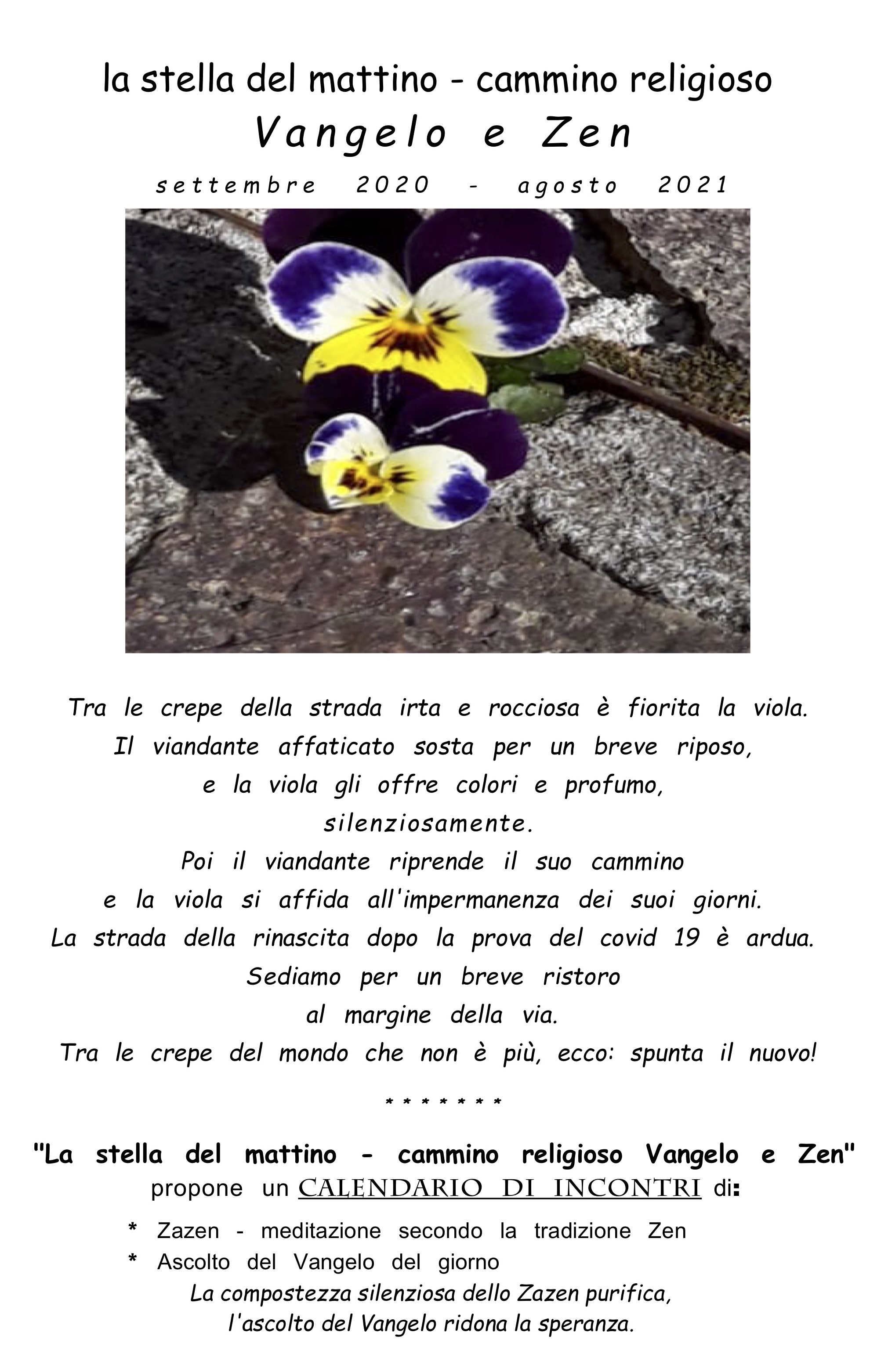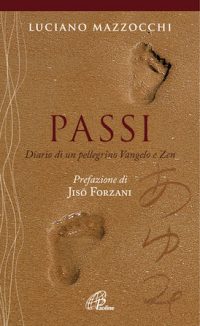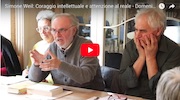The Morning star is a religious experience shared by Christians and Zen Buddhists, walking the path towards the authentic meaning of life, listening to each other, debating, and improving each other spirituality. Together, they search for the true meaning of what happens in nowadays history, pouring on it the witness of the Gospel and of the Zen, each within its own charisma.
The Morning Star is therefore the name of two sister communities engaged in dialogue with each other. The Morning Star Christian community is led by Father Luciano Mazzocchi, a Xaverian missionary. The Morning Star Italian Zen community is led by the Zen Monk Jiso Giuseppe Forzani.
The morning star is the symbol of the hope shared by these two great world religions. For Christianity, it is the symbol of Jesus Christ and Mary, the Virgin Mother. For Zen Buddhism it recalls Buddha’s awakening that took place in early morning when sitting in meditation and the morning star was shining in the sky. This symbolizes therefore the dawn of the encounter between Buddhism and Christiantity which now touches the life of many people.
The morning star is a most important expression of deep sympathy among individuals and nations, based on a dialogue whose critical aspects are:
* the respect towards oneself and towards one’s own cultural and religious tradition, which is in fact, the consciousness of one’s own historical identity;
* the respect, the knowledge and friendship towards the cultural and religious heritage of the others and their own identity.
Respect and sympathy are expressed in the context of a religious dialogue, based on the conviction that all identities are not points of arrival, but paths into the mystery of man, of every man, in the most intimate of whom the Spirit purifies and joins everything, in truth and love.
The morning star is an opportunity to share the spiritual wealth grown in Christianity and Zen Buddhism as suggested by the Holy See in its document “Dialogue and announce”: “ The dialogue over religious experiences among persons rooted in their own religious traditions who share their spiritual wealth, for instance, in regard to prayer and contemplation, the faith and the search for God and the Absolute” (42,d).
The Christians share with their Zen brothers the specific gift of their religious identity. They bear witness to the historical event of God’s freely revealed in Christ, who has transformed himself into man’s word, food and drink. They bear witness that brotherly forgiveness and love given and received is the main avenue for man to reach his eternal nature, the kingdom of God, where “will be greater joy in heaven for a sinner who has converted than for ninety-nine good men who do not need to convert” (Lc 15,7).
The Zen Buddhists share with their Christian brothers the charisma of their religious belief, based on the trust in the inner dignity of man, that manifests itself when sitting in silence in the lotus position. In this position, man reaches directly, immediately and harmoniously his true nature and that of the world.
The Christian way is to listen to the joyful announcement that is made. It is to christen everything, good and evil, until everything dies and rises again in God’s love. The Buddhist way is to sit awake and straight in order to bring every being, good and evil, back again to the dignity of his origin. The dialogue between the Gospel and Zen is born of the realization that both ways are rooted in the human soul. Christianity and Buddhism are two parties in the dialogue that mankind has always held in its innermost, all along the path of history, searching for the religious meaning of the mistery of being. It is so because both awaiting God’s grace and listening to one’s own nature are part and parcel of being man. Existential faith in the gift of grace and existential unity with one’s own human nature. The gift of the Gospel that calls to the natural dignity of Zen. Natural dignity of Zen that calls to the free gift of the Gospel. Annunciation of the Gospel and ears that understand. “He that hath ears to hear, let him hear!” (Mc 4,9)
The morning star is a concrete proposal to sanctify every day, accepting Christ’s grace in Buddha’s position. Jesus said: “ So is the kingdom of God, as if a man should cast seed into the earth, and should sleep, and rise, night and day, and the seed should spring, and grow up whilst he knoweth not. For the earth of itself bringeth forth fruit, first the blade, then the ear, afterwards the full corn in the ear” (Mc 4,26-28). A fruitful religious dialogue between Zen and the Gospels is at the same time personal and community-wide. It is personal because each individual makes the Gospel and Zen dialogue within himself, in his life, in his engagements, in his own home. It is community wide because the personal way is fed and strengthened by sharing and confronting it with that of the others. In the end, a new religious culture will be born.
Father Luciano Mazzocchi
Nessun tag per questo post.




